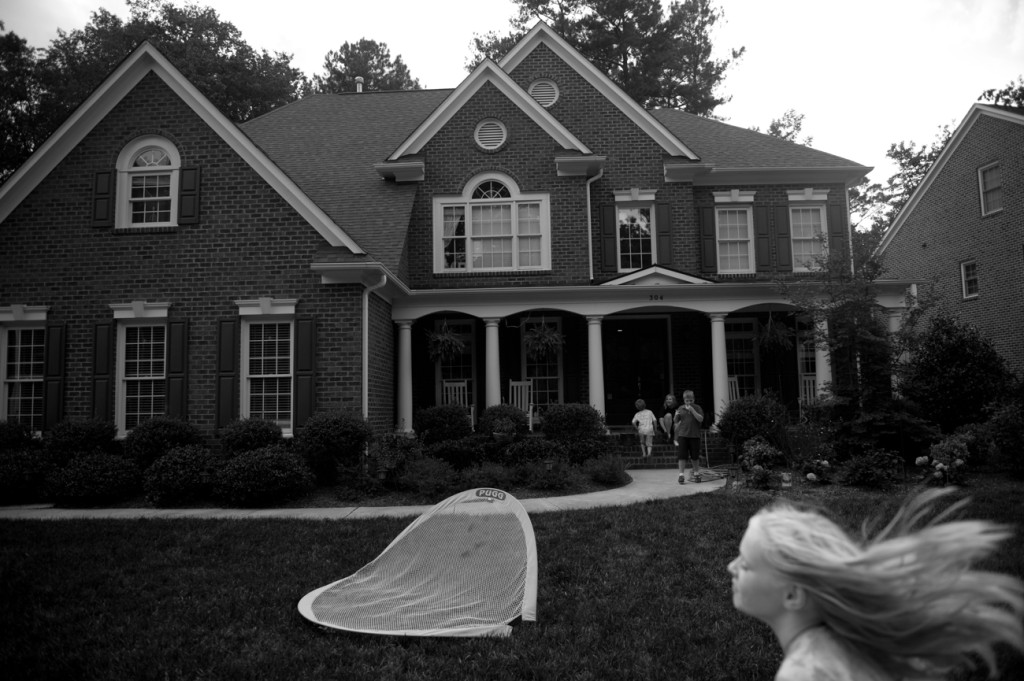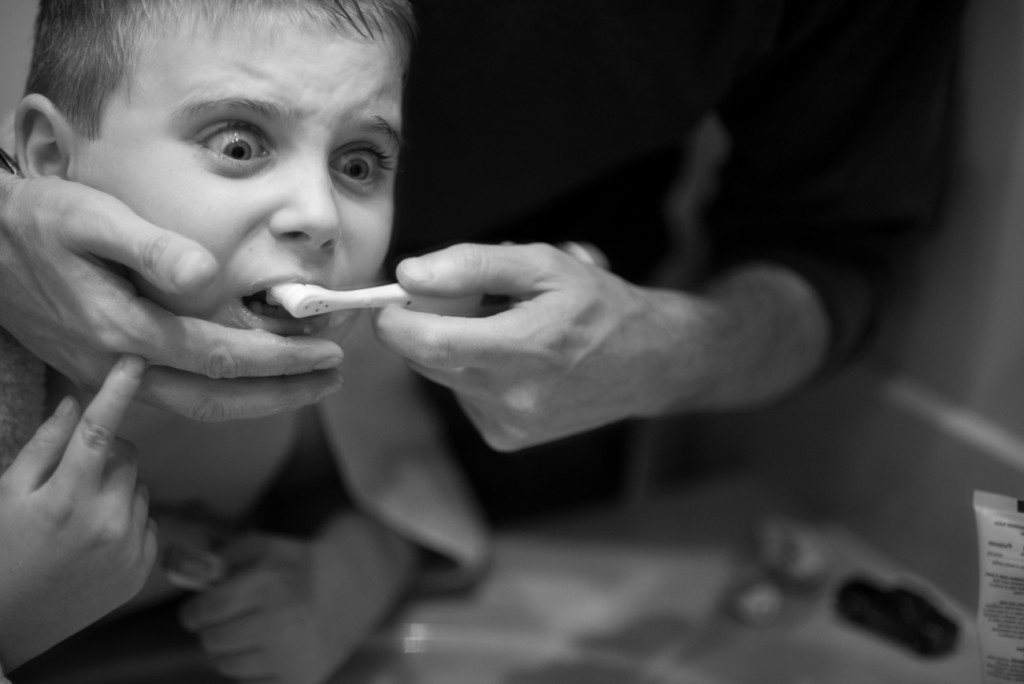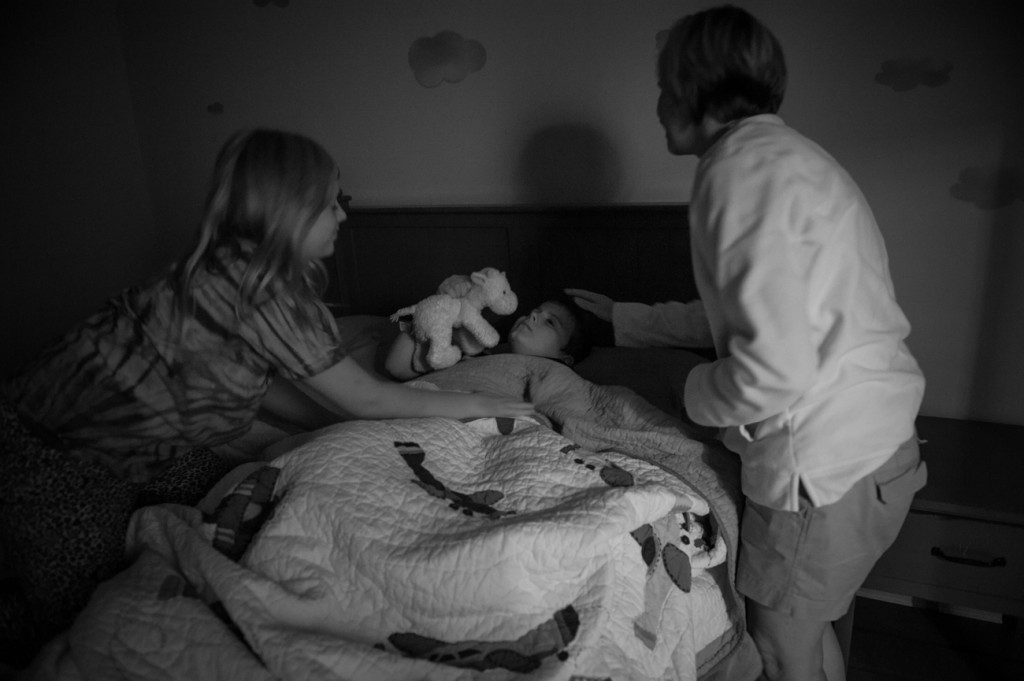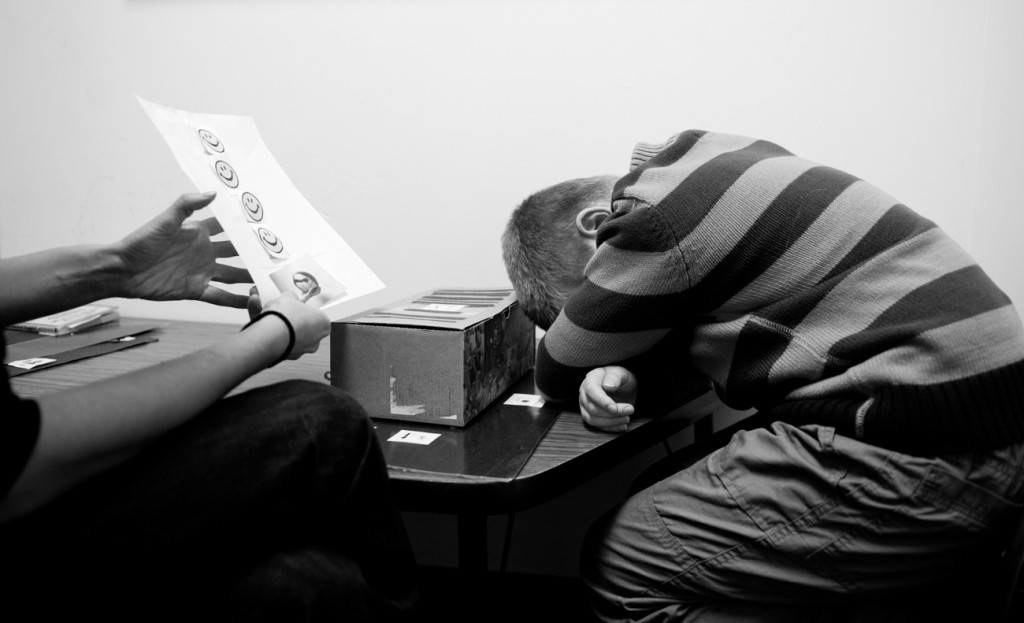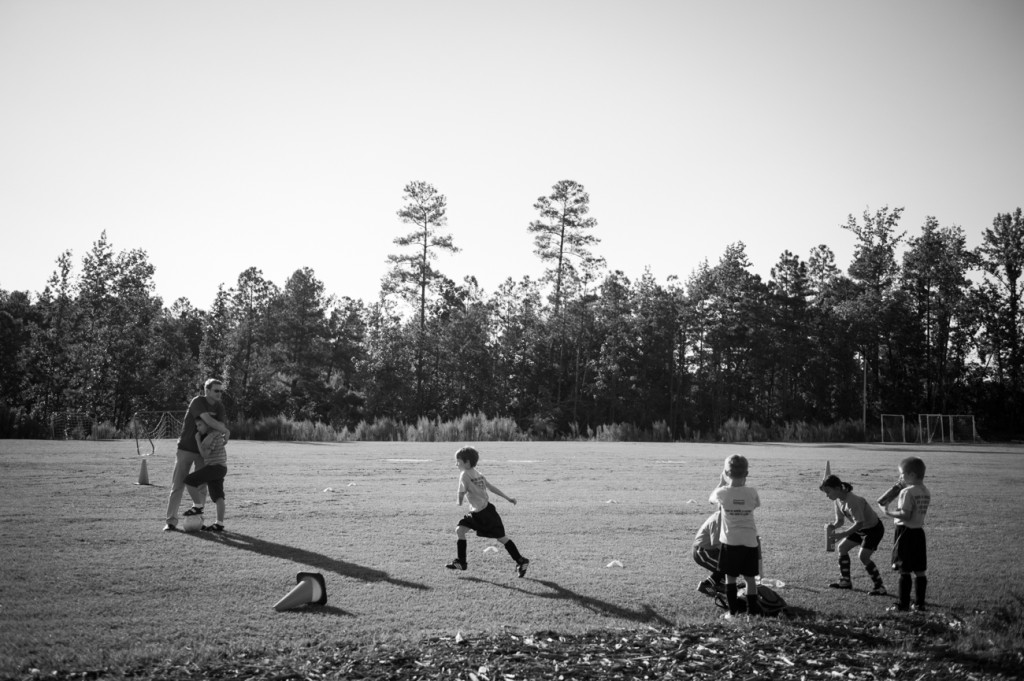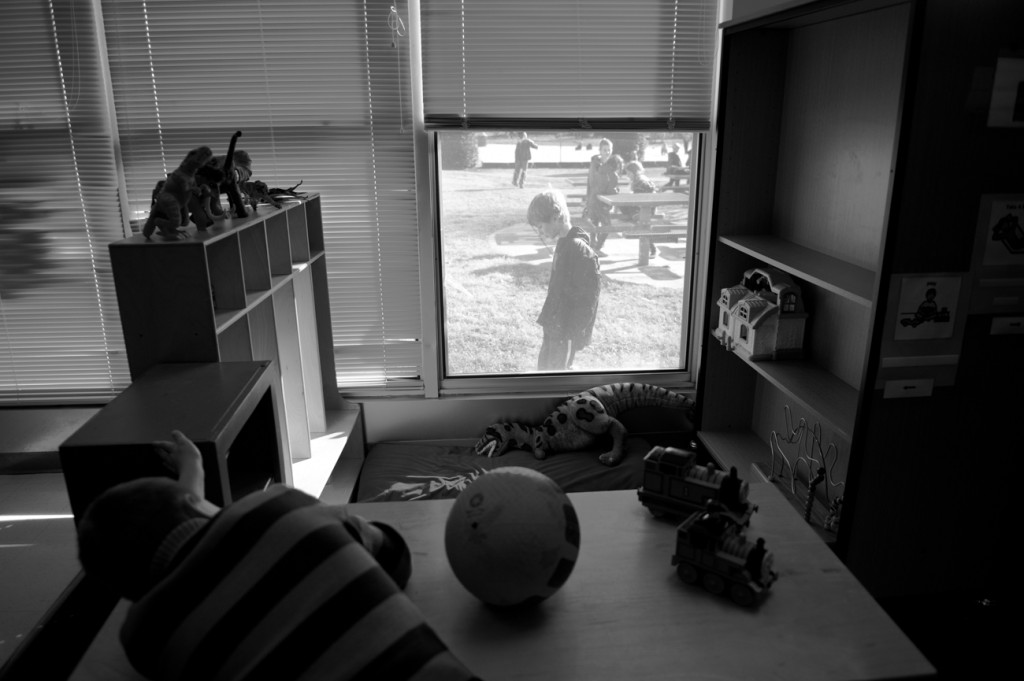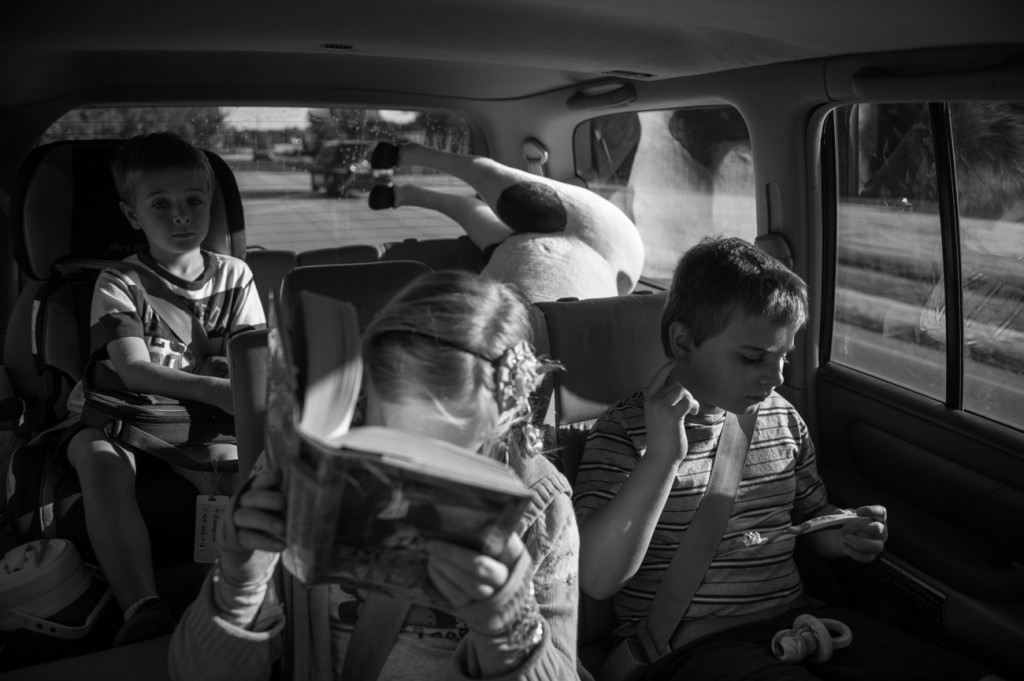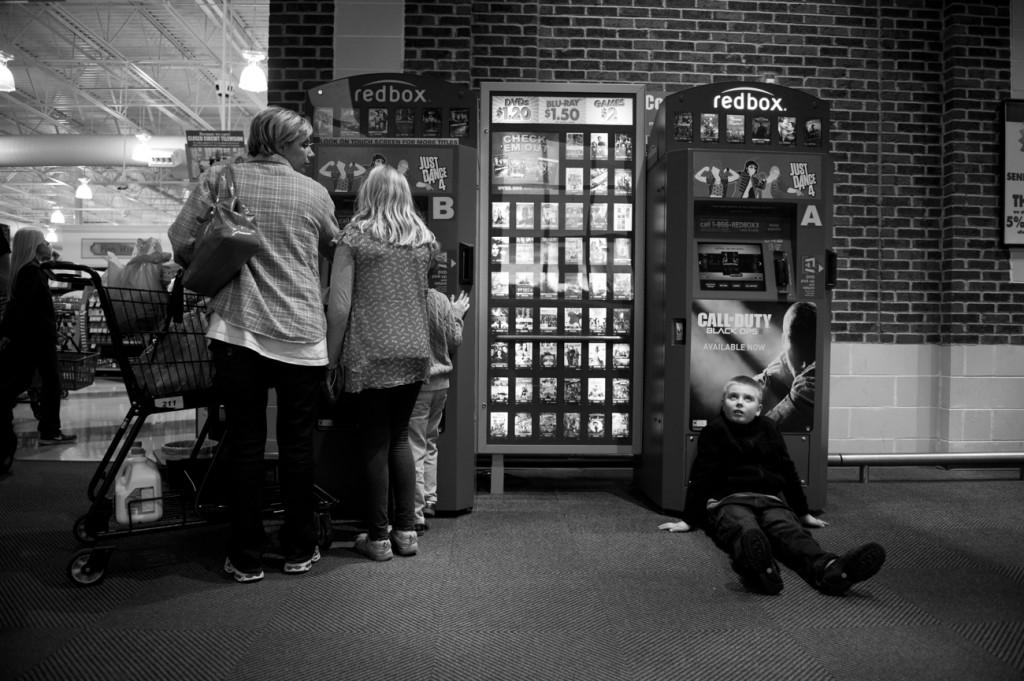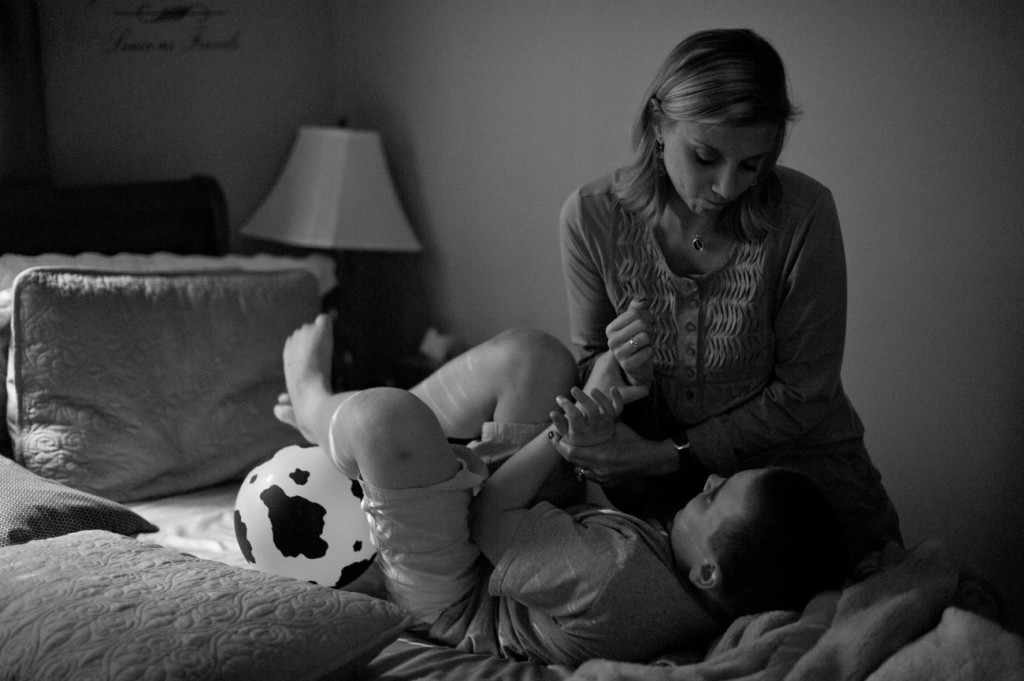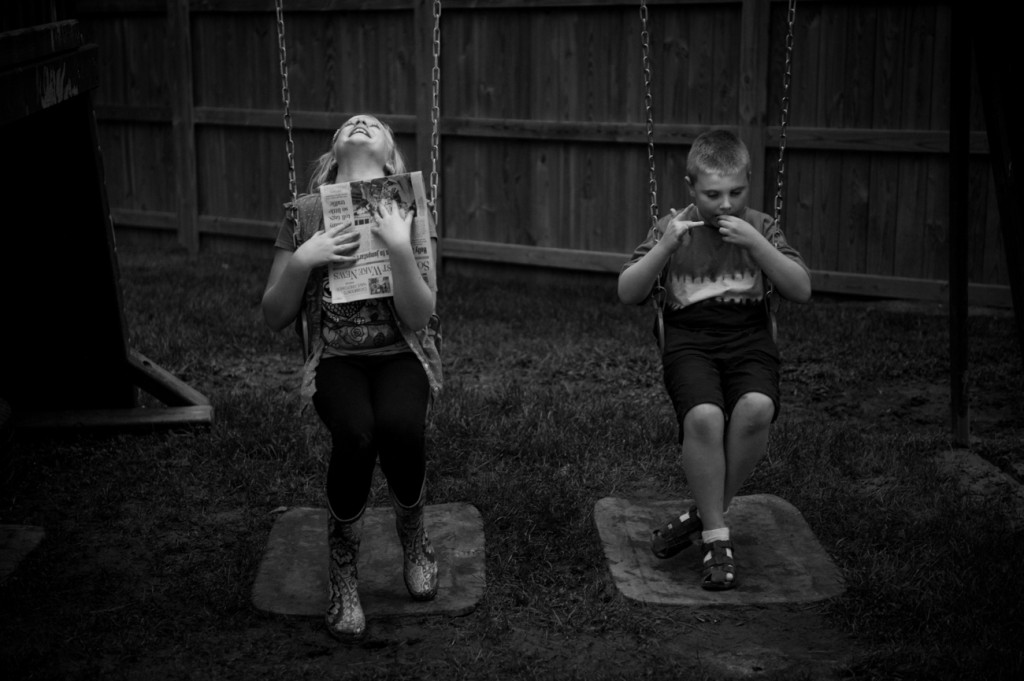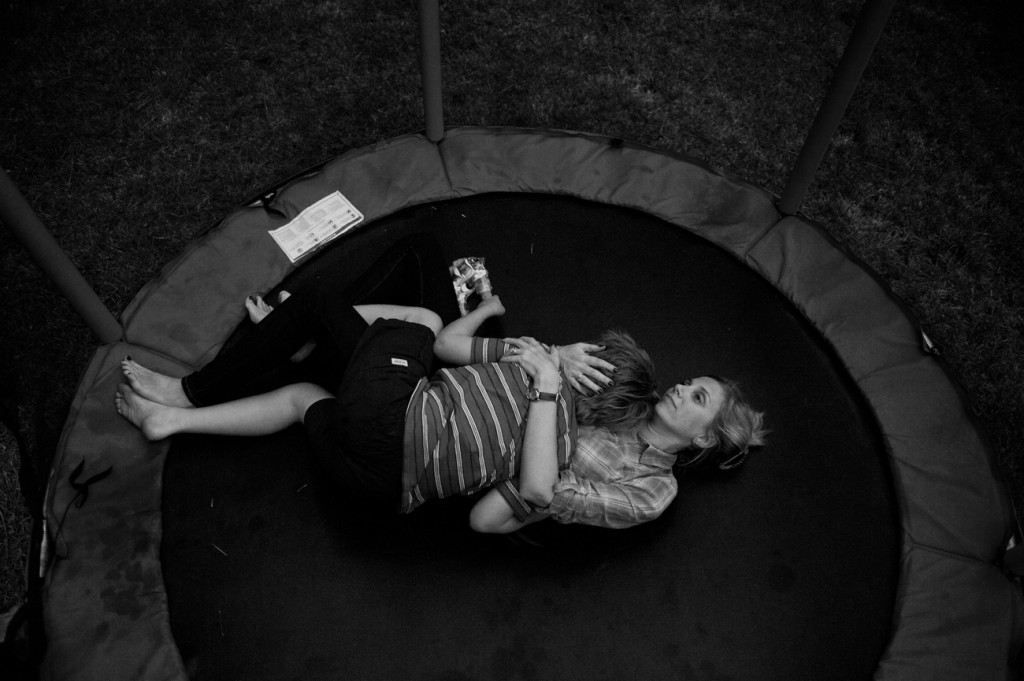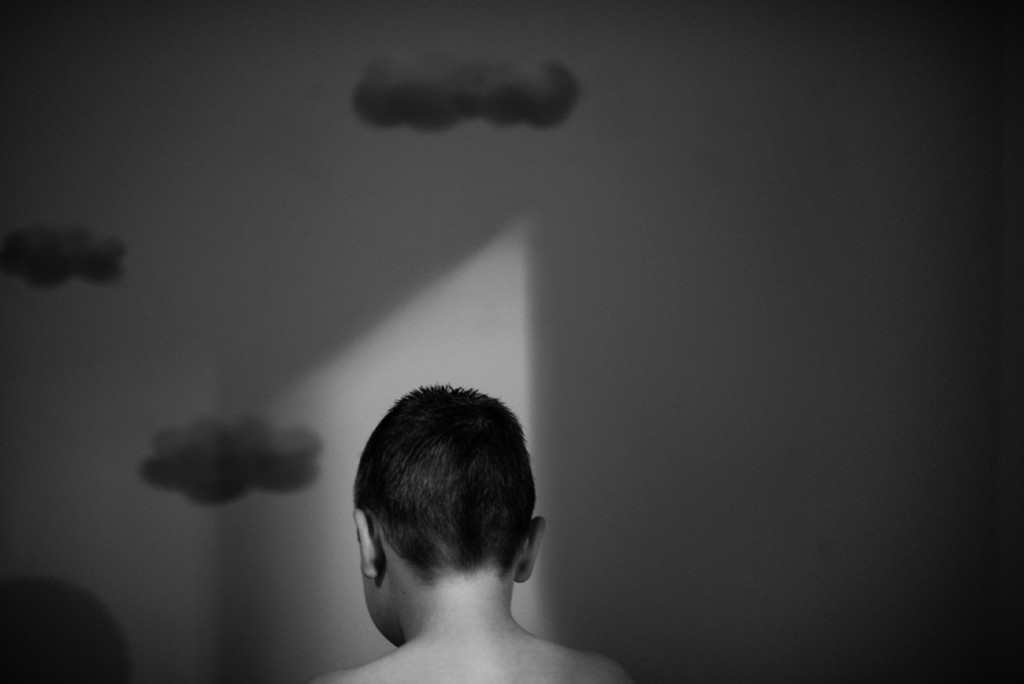"Things that wouldn't bother us might set him off completely," says Erin O'Loughlin of her son Marcus, 8, who was diagnosed with autism when he was 3 years old. "A lot of it is because of overstimulation and sensory issues. So we wind up looking for what makes him happy and what makes him tick, what's good for his reality and his world, and then we foster that." Autism is a developmental disorder that is usually diagnosed in the first three years of a childís life. It affects the neurological development of social and communication skills. There are various types of autism diagnoses, which are placed on a spectrum. It is still unknown whether the development of autism is related to genetics or prenatal and early childhood environments.
The O'Loughlin family lives in a suburb in Cary, North Carolina, in a row of similarly built houses—but the O'Loughlin family is unique. "Marcus and his autism are all my children have really ever known," Erin says. "Autism has always been a part of our lives. It's just a part of who they are. It's hard on Jordan and Brendan. I spend a good portion of my thoughts worrying about them resenting me later on."
"I often try to think of what it must be like in his little brain. I envision fireworks, just fireworks going off. I don't know what it's like in there, but it must be like living with constant noises and sounds and explosions going off all the time," Erin says.
Erin and her daughter, Jordan, put Marcus to bed. As Marcus ages and grows, his tantrums become more violent and difficult to control. Despite the hurt he causes, his family still relishes in quiet, loving moments like this one.
Marcus has a one-on-one session with his teacher, Kim Lopes, at Middle Creek Elementary School. He has been in the same autism-specific classroom for two years, but he's required to move to a higher class level next year despite being unprepared for the material.
Colm, Marcus' father, shelters Marcus as they watch Brendan run during a soccer lesson. Colm has always played soccer and enjoys sharing that with Brendan. He works long hours to support his family, so Marcus stays close to him whenever he is home.
Marcus spends much of his time at school watching children play outside. Middle Creek Elementary School is primarily for what the autism community calls "typical" children: those who do not have developmental disabilities. Erin considers herself lucky that there is an autism-specific classroom in her area, since this type of classroom is rare, but vital to Marcus' development.
For Jordan and Brendan, "having a special needs person in their lives is just natural. That's their world, so if they see another person with different special needs, it doesn't even phase them. Sometimes they even go up and start talking to them. They may have a question or two for me later, but that factor of inhibition and fear is simply not there. It's a beautiful thing," Erin explains.
Erin checks on Marcus as Brendan and Jordan pick out a movie at a Harris Teeter in Cary, North Carolina.
During a violent outburst, Erin tries to break away from Marcus as he tears at her skin with his nails, leaving her bleeding. Erin had to learn a few self-defense moves to keep her safe when dealing with Marcus alone at home. He has grown bigger than her, but if she can get his arms behind him, she can usually stay safe for a few moments.
The three O'Loughlin children play at the end of their street. "I want them to always know I love them for who they are, for their very existence of being here. They don't need to be Marcus' caretaker. They don't need to be strong for us. They don't need to be good girls and good boys because we have a lot on our plates. No, they just need to be typical kids," Erin says.
Jordan, left, was extremely enthusiastic about the story written in the Cary News on her mom's efforts to start 3 Irish Jewels Farm, an assisted-living farm for adults with autism. "I want to guarantee a future for Marcus and the farm is my way of doing that," says Erin, who is still raising money for the farm. "Individuals with autism have specific, different needs from your typical individual. They have high sensory issues. They cannot be in an urban environment where there are tons of sounds and crowded issues going on. They need that sense of serenity and they need an area where they can call home," she says.
After a long afternoon of Marcus' violent attacks and tantrums, Erin finds solace snuggling with Brendan on the family's trampoline. Since Marcus has become violent toward the family, they are seeking a permanent facility to take care of him. His violent outbursts appear to be more out of frustration with his own inability to express his needs than out of malice; however, he is nonetheless threatening the safety of his parents and siblings. Because Marcus is only 10 years old, the decision to place him in a permanent care facility weighs heavily on Erin, even though she knows it's best for Marcus, Jordan, Brendan, and her marriage.
"When your child is born, you have all of these dreams and expectations for what that child may or may not become, but with a diagnosis like autism, you have to create new dreams," Erin says.

